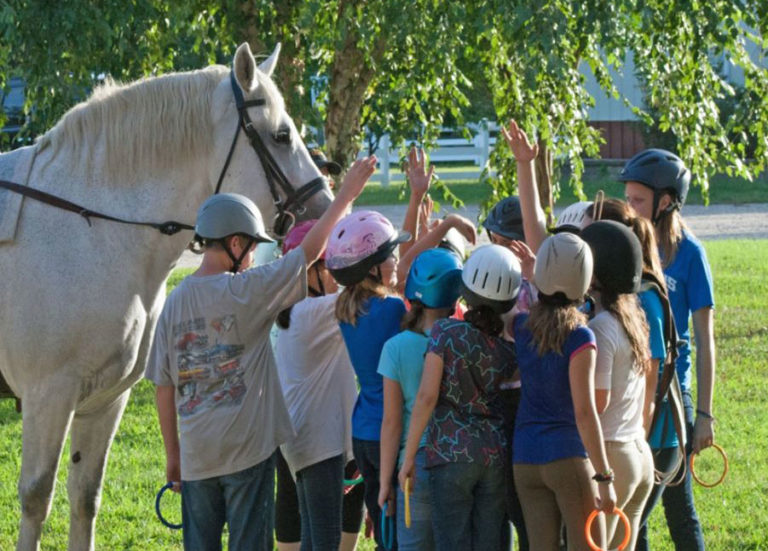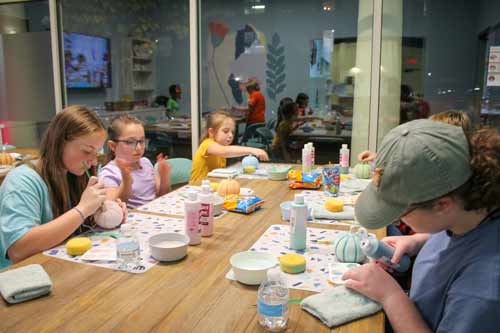Negotiating Screen Time in a Virtual Landscape
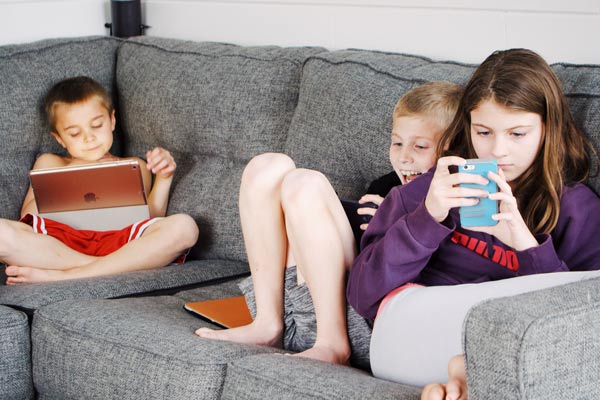
Negotiating Screen Time in a Virtual Landscape
Written by Madeline Vann, NCC, M.Ed. at White Cloud Therapeutic Services
Conflict over screens comes up a lot lately with families and couples – and even individuals, who are wondering if they are on their screen too frequently. Common ground for all of us appears to be worrying about the kids.
We know that there are risks associated with excess screen time – from reduced attention and outright meltdowns over getting off screens to physical impacts on vision and posture. Depression and anxiety also can be worsened by experiences online. And family conflict definitely escalates around how a family prioritizes getting chores done or continuing with a video game (as an example).
I share everyone’s worries about how our children and teens are doing with this increasingly on-line life we all lead. If we’re honest, we adults struggle to find balance – how can we expect our kids to do better than us?
I have a few ideas to offer you. Some may work for you, and others might not. I find that family counseling is helpful for families that are having a lot of conflict and anxiety around screens.
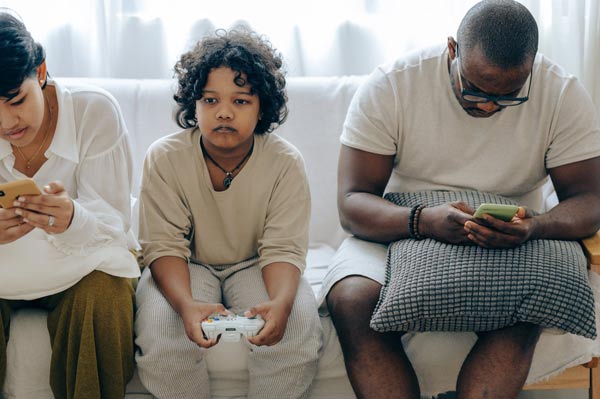
– You are the role model. Our children and teens learn more from what we do than from what we say. So although it is tempting to say – I’m the adult so therefore it is ok for me to be playing video games late at night but not you – realize that what you are actually teaching your teen is that video games are more important than sleep and relationships.
– You have to help teens and children prioritize. For example, all the kids seem to have difficulty getting off screens when it is time to do so. As a family, it’s worth talking about what your priorities are. Is it more important to help out around the house and show up in conversation with friends and family, or to be streaming/gaming/scrolling through social media? What is more important, doing what a parent asks you to do, completing your schoolwork, or finishing the level?
– Teach good manners. Sometimes it seems like the online world our kids are in is so removed from their “real life” that our parenting doesn’t apply. I will argue that classic parenting strategies, such as teaching kids to speak nicely and that sharing is caring, apply just as much in their games or online as they do in the real world. Likewise, your kids’ desperation to finish the level or post to social media does not mean they can speak to you or anyone else rudely.
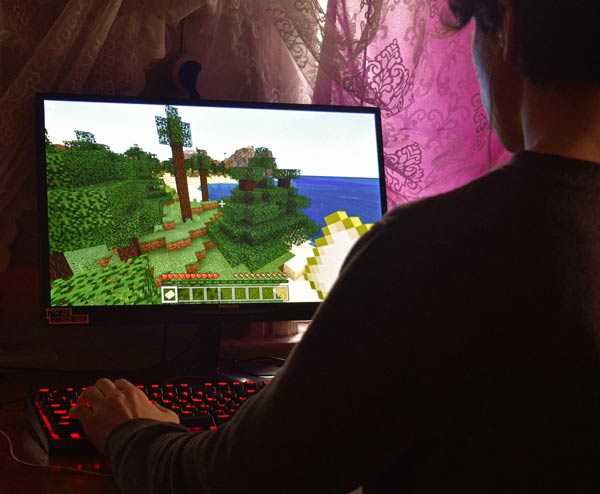
– Monitor your kids’ online lives. Letting the kids go online without you monitoring them is like dropping them off in Times Square in New York City with no accountability. It could be fine …. But over time it’s not going to work out well. Your children and teens will not like that you are monitoring them, but ultimately they will feel more safe and secure knowing that you care (even if they never say it.) Some things to think about are – do you know who their “friends” are? How did they meet them? What do they talk about? Do you know what YouTube videos they are watching or what games they are playing, and with who?
– Do not give in to meltdowns. If you give in to your kids’ or teens’ temper and let them stay online when you have told them it’s time to stop, you reward their meltdown behavior. I have yet to meet parents who are thrilled to be yelled at or disobeyed.
– Discuss their online experience. This is their world, and it’s your job to help them navigate it. That means talking to them about what’s happening, what’s working and what is not working. Keep an open line of communication so they can come to you when they run into problems with which they need help. Topics to discuss may be – what was your goal in that game/interaction? How do you know if you’re doing well? Why do you think this person behaved that way online, or said what they said? When things don’t go your way in a game, how do you handle the frustration? When you play with other people as a team, what helps you do well together? How do you do research to learn more about the things you are interested in?
Many of these questions can lead to discussions about skills that your child or teen could use in real life as well. Creative problem solving, team work, managing frustration, trying again even when things are hard – these are all useful skills to have. We can highlight what the kids are doing well, while at the same time setting limits and encouraging them to do something other than be on a screen all day.
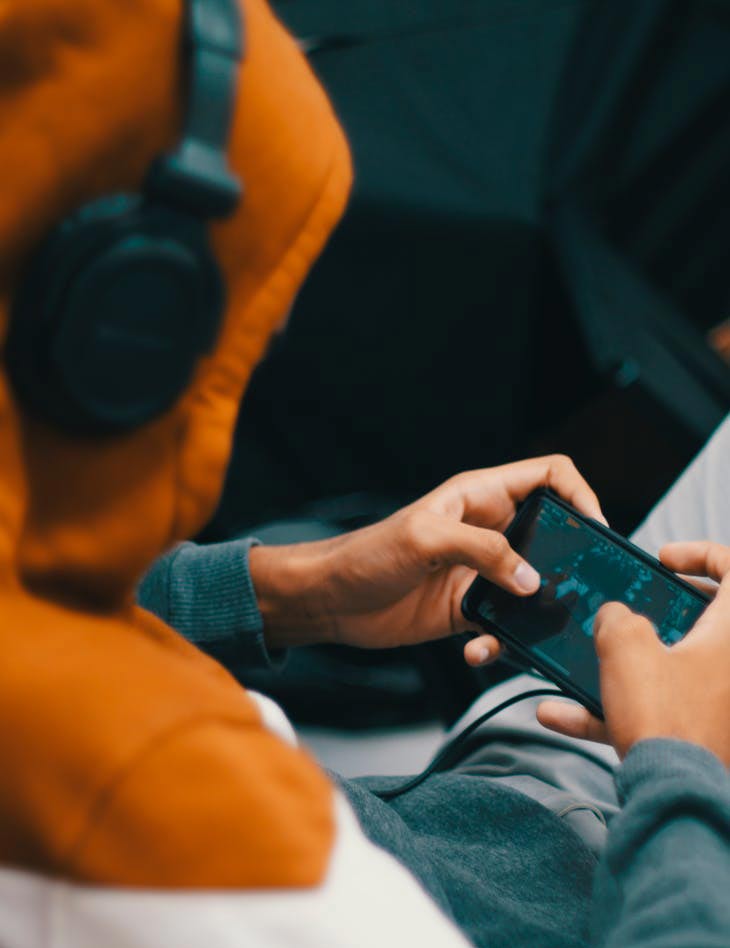
– Talk to your kids about your own online experiences. Many of us are finding that being online with social media, 24-7 news, and constant Zoom meetings is exhausting, physically and emotionally. Your kids can learn a lot from you being honest about this experience and what you are doing to turn things around for yourself.
– Turn screens off 1-2 hours before bed. This is probably everyone’s least favorite idea, and yet it is essential for your household to get quality sleep. In fact, it’s one of the most important things you can do not just for sleep but for anxiety, depression, and attention and focus. If this is a problem for you personally, or for your family, it’s worth thinking about why and how screens have become such constant presences in your home that some or all of you want to go to bed with them.
Here are a couple of documentaries you can watch if you are interested in exploring these topics further
– The Social Dilemma, on Netflix
– Childhood 2.0 (https://www.youtube.com/watch?v=He3IJJhFy-I )
If you want to talk more about how to handle this personally, as a couple or a family, give us a call at WhiteCloud Therapeutic Services, LLC. We offer convenient teletherapy sessions, as well as in-person sessions, for individuals, couples, and families.
White Cloud Therapeutic Services, LLC, at www.whitecloudtherapy.com or 757-503-7917. We take most types of insurance and offer a sliding scale for clients who are self-pay.
Article was written and sponsored by Madeline Vann, NCC, M.Ed. at White Cloud Therapeutic Services



















